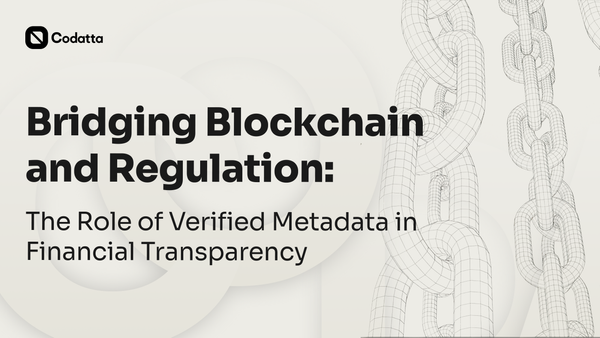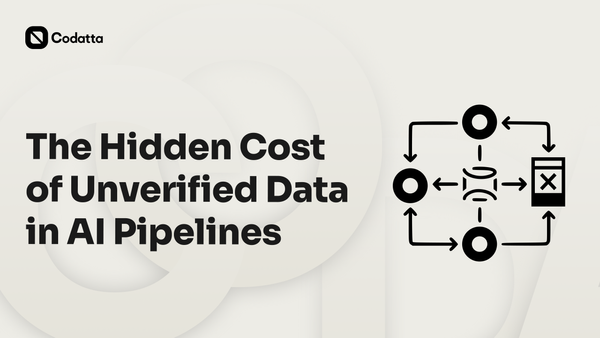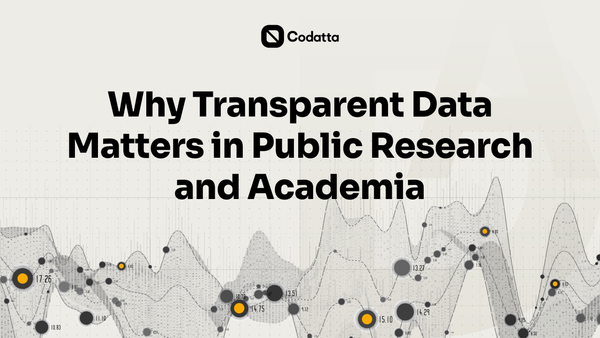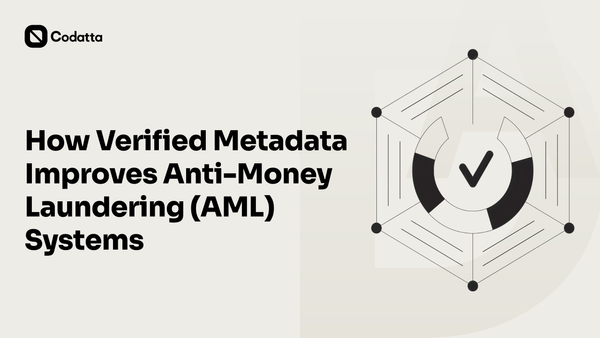Why the Next Generation of AI Agents Will Rely on Verifiable Data Sources
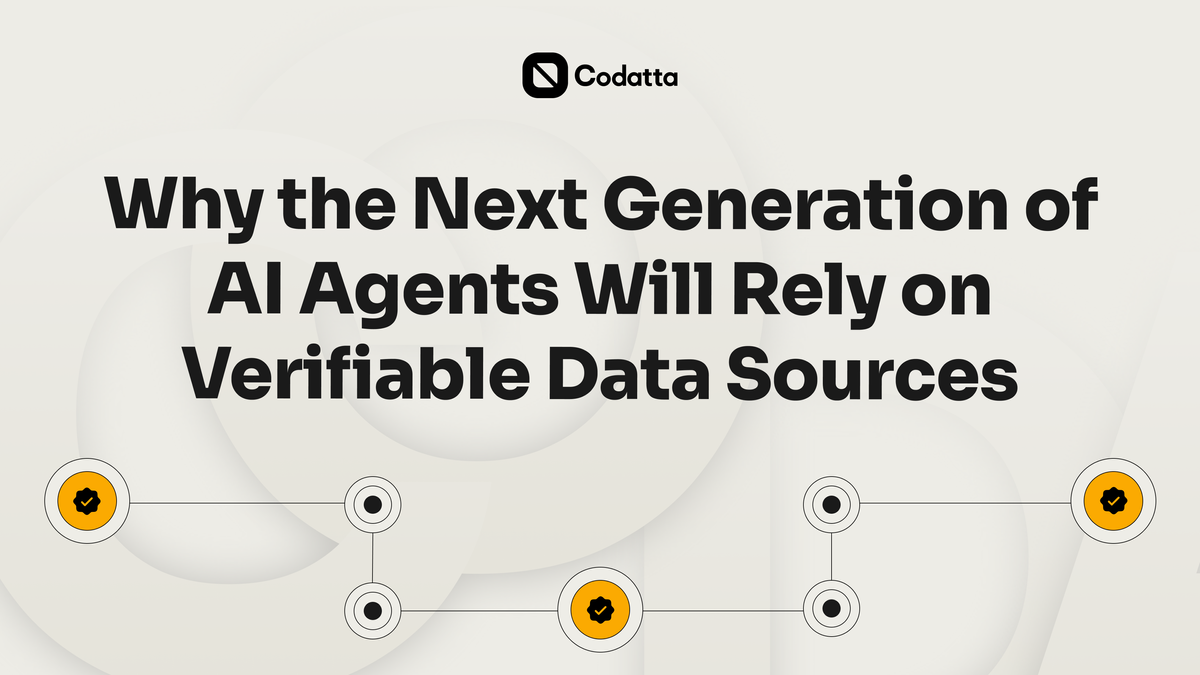
AI agents are moving from simple assistants to autonomous systems that perform tasks, make decisions, and interact on-chain without constant human oversight. Recent examples like OpenAI’s o1 models (2024) and ARAI Systems (2025) show how fast this shift is happening.
As these agentic tools grow more capable, they depend on trusted, verifiable data sources to function safely. Without verified inputs, even advanced agents can make unreliable or high-risk decisions.
Read on to see why verifiable data provenance is becoming the foundation for the next generation of autonomous AI agents.
The Problem: AI Agents Still Rely on Unverified Data
Most AI agents today depend on centralized APIs, web scraping, or static datasets that are not independently verified. These data sources often lack provenance, contain outdated or biased information, and can be manipulated without detection. As a result, when organizations deploy AI agents in real workflows, they inherit all the risks embedded in those unverified inputs.
A 2024 Stanford HAI analysis found that unreliable or unverifiable data remains a top cause of misinformation and “hallucinated” outputs in AI models. Without traceability, agents cannot justify their actions or explain why certain results were produced. This undermines human oversight and limits accountability, especially when agents operate autonomously in decision-making processes.
The issue becomes critical in applied settings. In finance, an agent drawing from unverified data can misclassify transactions or trigger false compliance alerts. In research, it can cite inaccurate sources or propagate flawed data through automated analyses. Even in natural language workflows or customer-facing ecosystems, agents that rely on unverifiable data can spread misinformation at scale, eroding trust in automation itself.
To ensure reliability, AI agents require verifiable credentials for every input and a clear chain of validation that shows how information was gathered, processed, and approved. Without this foundation of provenance and data assurance, agents cannot be trusted to act autonomously within regulated, high-stakes, or data-sensitive environments.
What Verifiable Data Sources Solve
Verifiable data refers to datasets and information streams that include complete provenance, validation records, and contributor reputation. Each entry carries proof of origin, quality, and review, allowing users and regulators to confirm its authenticity and integrity. This foundation is essential for autonomous systems that depend on real-time information to make decisions and execute tasks within complex digital ecosystems.
The FATF (2024) and OECD AI Governance Guidelines (2025) both emphasize that trust in automated and agentic systems depends on data that can be verified, audited, and traced across its lifecycle. When agents operate with this level of visibility, organizations gain higher confidence in their decision-making processes and reduce the risk of misinformation, bias, or regulatory noncompliance.
For financial institutions, research organizations, and compliance teams, verifiable metadata transforms how AI models and autonomous agents operate. It ensures that each dataset used for analysis, reporting, or transaction monitoring is reliable and traceable. This approach enables more consistent verification, making it possible to explain how an agent reached a conclusion or executed an action — critical for maintaining accountability in high-risk environments.
Verifiable data also improves reproducibility and data governance. It strengthens auditability for AI systems that use natural language, automation, or cross-domain datasets, ensuring that outcomes can be tested and verified independently. As agents become more autonomous, access to cryptographically validated data allows them to manage sensitive information, track transactions, and interpret complex workflows while maintaining transparency and control.
In short, verifiable data provides the structural integrity needed for agentic AI to evolve responsibly. It enables autonomous systems to operate within regulatory and ethical boundaries, ensures that data-driven decisions can be trusted, and builds a stronger foundation for the next generation of AI agents designed to perform tasks reliably across industries.
How Codatta Enables Verifiable Data for AI Agents
Codatta provides the foundation that AI agents need to make decisions based on verified, traceable, and transparent data. Its decentralized protocol structures validation through contributor verification, metadata provenance, and hybrid checks that combine human review with automated accuracy scoring. Each verified record carries an auditable trail that shows who contributed, when validation occurred, and how consensus was reached.
Contributors across the network tag and confirm blockchain addresses, datasets, and transaction records using structured metadata. These records are stored with visible provenance trails, allowing other systems to confirm authenticity before use. This approach improves the quality and reliability of data used in AI research, supply chain management, and other AI applications that rely on accurate, real-time information.
Codatta does not build or deploy AI agents. Instead, it enables them. The protocol supplies verifiable, structured datasets that AI agents can query to support autonomous reasoning and decision-making. When agents must prove why a conclusion was reached or verify the source of sensitive data, Codatta’s infrastructure provides the necessary validation layer to ensure integrity and accountability.
The collaboration between Codatta and ARAI Systems illustrates how verified on-chain data can support autonomous agent frameworks. Codatta’s decentralized protocol provides the data validation layer, while platforms like ARAI explore how agents can interact transparently within blockchain ecosystems. This collaboration highlights how verified data enhances trust across complex digital environments, ensuring that agents can operate securely and transparently while maintaining compliance and precision in every interaction.
Real-World Applications
Codatta’s framework has practical value across several high-impact use cases where verified data is essential for safe automation and informed decision-making.
Finance
In financial compliance and credit risk workflows, AI agents operate on blockchain intelligence that must be accurate and traceable. When agents can reference Codatta-validated data, they gain reliable context for anti-money-laundering reviews, transaction scoring, or real-time portfolio monitoring. Verifiable provenance helps ensure that automated risk assessments are based on confirmed facts rather than incomplete or manipulated inputs.
Research
Generative AI tools and autonomous research assistants increasingly need structured datasets that meet reproducibility standards. Agents that analyze scientific results or metadata consistency can use verifiable records to prove that a finding aligns with its source data. This supports transparency in research and allows teams to build confidently on previous studies while protecting personal data where required.
DeFi
In decentralized finance, smart contracts and agentic systems rely on external data feeds to execute transactions securely. Codatta enables AI agents to confirm that the underlying transaction data, liquidity information, or governance records have verified provenance before triggering any automated action. This adds a layer of assurance to on-chain operations and reduces the risk of errors that could compromise financial stability.
Across these domains, verifiable provenance allows agents to prove the basis of their actions and ensure that each decision reflects trustworthy information. This foundation distinguishes the future of AI from traditional models that depend on opaque inputs. As generative AI evolves and agents become more autonomous, reliable, and auditable, data will remain the key factor that enables AI agents to operate safely within complex digital ecosystems.
The Road Ahead
Verifiable data is becoming the backbone of how AI agents evolve and operate. As autonomous systems take on more decision-making responsibilities across finance, research, and governance, the need for transparent, traceable data sources is turning from a technical advantage into a regulatory requirement.
According to the World Economic Forum (2024), the growth of learning agents and agentic automation demands shared data standards that ensure each output can be traced to a verified input. Similarly, the European Union AI Act (2024) emphasizes that AI agents are autonomous systems that must demonstrate accountability and traceability across their workflows. These frameworks signal a clear direction for global AI governance: transparency and provenance are not optional.
Verifiable data strengthens both compliance and trust. When AI assistants, generative models, or agents take autonomous actions, cryptographically proven data trails allow developers and regulators to confirm how conclusions were reached. This reduces uncertainty, supports responsible deployment, and builds long-term confidence in agent-driven ecosystems.
Codatta’s infrastructure aligns with this future by providing a transparent foundation that learning agents and verification systems can rely on to ensure data quality and accountability. The concept of verifiable AI becomes tangible when every action, annotation, and decision can be traced and understood without relying on traditional black-box processes.
In the coming years, verifiable data sources will define the transition from traditional AI to trusted automation. As gen AI and agentic systems expand, the ability to build trust through verifiable provenance will determine which platforms and applications succeed at scale.
Conclusion
As agents that autonomously make decisions become more common, the need for data that can be proven, traced, and trusted is growing. AI solutions built on verifiable information will be the ones that earn confidence and scale responsibly.
Codatta plays a part in this transition through its decentralized data layer, ensuring that every record includes verifiable provenance and cryptographic proof of integrity. This foundation allows multiple agents to take actions based on transparent, validated signals rather than assumptions.
The next wave of AI will be defined by reliability, integrity, and collaboration, and ensuring that AI operates on verifiable data is the key to making that future possible.

